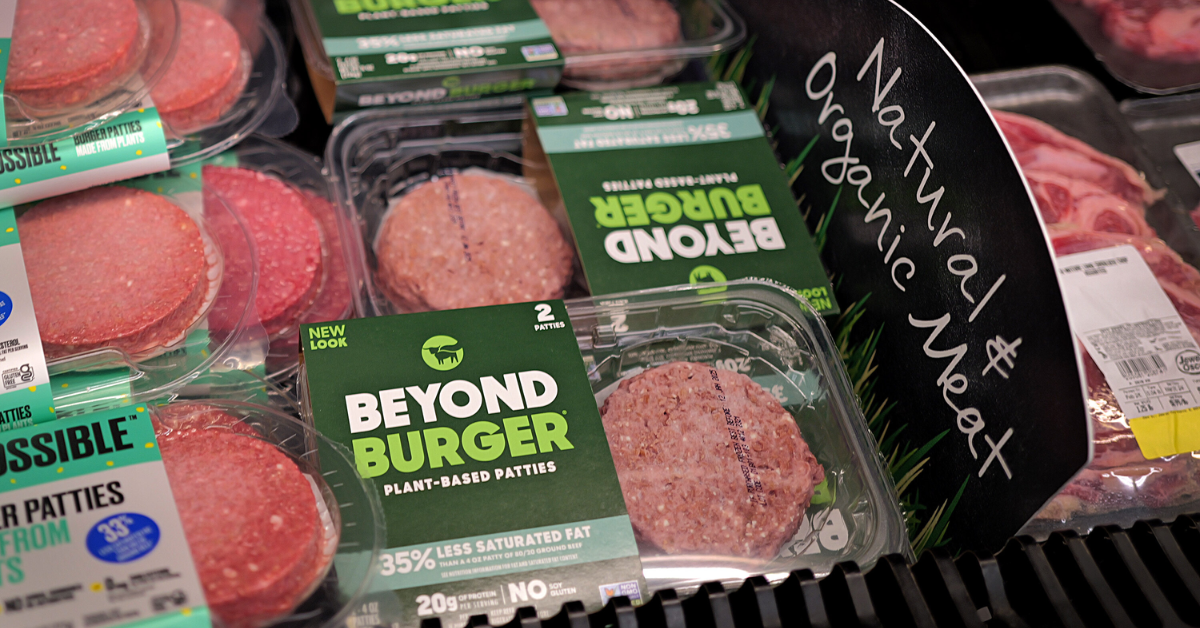
Fake meat products are becoming increasingly popular worldwide, especially among younger people looking for plant-based alternatives. Promoted as healthier and more environmentally friendly, these products claim to be a solution to many issues caused by traditional meat consumption. However, this growing market, currently valued at around $2 billion, raises many questions about its true benefits and hidden costs.
Despite the buzz, many nutrition experts and environmentalists warn that fake meat is often ultra-processed food, which might not be as healthy as advertised. It is important to take a closer look at what these products really contain and who benefits most from this rapidly expanding industry.
What is Fake Meat?
Fake meat, also known as plant-based meat, is designed to imitate the taste, texture, and appearance of real meat using various plant ingredients like soy, peas, and wheat proteins. Companies such as Beyond Meat and Impossible Foods have made headlines with products that look and cook like beef but contain no animal products. The goal is to reduce meat consumption for health and environmental reasons, appealing to vegetarians, vegans, and flexitarians alike.
However, fake meat is generally ultra-processed, meaning it goes through many artificial steps to create the final product. According to research from the National Center for Biotechnology Information (NCBI), ultra-processed foods often contain additives, preservatives, and artificial flavors that may not be beneficial for long-term health.
Health Concerns: Not as Healthy as They Seem
One common belief is that fake meat is healthier than regular meat. While it is free from cholesterol and animal fats, fake meats often contain high levels of sodium, saturated fats, and chemicals that can be harmful if consumed regularly. The ultra-processed nature of these products means they could contribute to heart diseases, obesity, and other health issues despite being plant-based.
Experts also point out that whole, natural foods like legumes, vegetables, and nuts are much better choices for a healthy diet than processed fake meat products. As noted by the Healthline, relying too much on plant-based meat substitutes could mislead people into thinking they are making healthier choices when they might not be.
The Environmental Debate: Green Claim or Greenwashing?
Fake meat producers often stress their products’ lower carbon footprint compared to traditional beef. It’s true that raising livestock generates significant greenhouse gas emissions and requires a lot of water and land resources. Plant-based meats do have a smaller environmental impact in many cases, which is a valid point in their favor.
However, critics argue that promoting ultra-processed fake meat distracts from more sustainable food systems. Growing fruits, vegetables, and pulses with minimal processing can have equal or better environmental benefits. Some environmentalists call this trend “greenwashing,” where companies appear environmentally friendly but continue business as usual to maximize profits. A detailed report by The Guardian explores these environmental trade-offs in depth.
Who Really Benefits?
While fake meat markets are held up as a win-win for animals, health, and the planet, the major winners seem to be large food corporations. These companies invest heavily in marketing fake meat, which often comes at a premium price, making it less accessible for many people. The ultra-processing techniques also ensure long shelf life, wider distribution, and strong brand control.
Small farmers and traditional meat producers may face economic challenges due to this shift, but consumers should also be aware that not all “plant-based” equals healthy or ethical. Transparency in ingredient sourcing and clearer labeling are necessary for consumers to make informed decisions.
Conclusion: Think Twice Before Buying Into the Hype
Fake meat is not a simple solution to the complex problems related to food, health, and the environment. While it offers alternatives to traditional meat, it is essential to understand its ultra-processed nature and potential health risks. Young consumers, especially in India and other developing countries, should focus on whole, natural plant foods that are affordable and nutritious.
The next time you see a shiny packaged burger claiming to be better for you and the planet, remember to check the ingredients and think about the bigger picture. Sustainable eating means smart choices that go beyond clever marketing and corporate profits.









